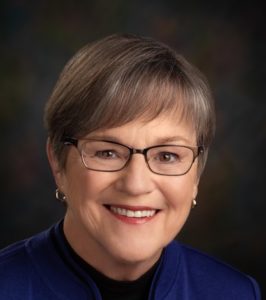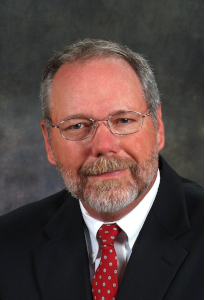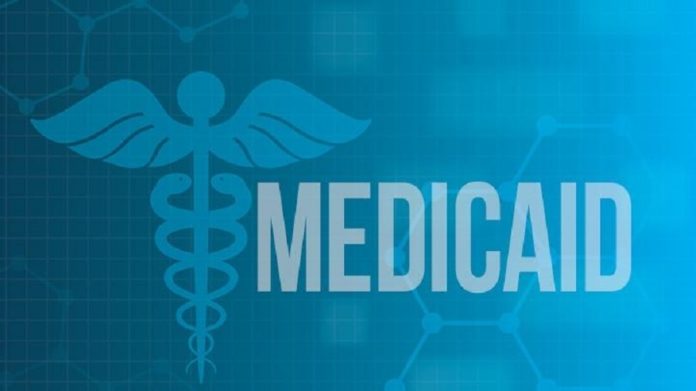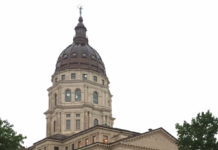Republican lawmakers are moving to increase rates for health care providers, hoping that it will help make it more affordable for physicians and hospitals to care for Medicaid patients.
The House Appropriations Committee on Wednesday adopted a proposal raising Medicaid provider rates across the board for physicians by 15% and outpatient rates for hospitals across the board by 30%.
The money that will go into the House version of the state budget totals nearly $80 million, including about $34 million for physician rates and $45.2 million for hospital rates.
Republican lawmakers say the proposal is a more suitable solution for bolstering struggling rural hospitals while incentivizing physicians to take on more Medicaid patients.
The proposal was offered as an alternative to expanding Medicaid, a proposal that Democratic Gov. Laura Kelly has pushed throughout her two terms as governor.
House budget-writers removed the $715 million proposed for Medicaid expansion in the fiscal 2025 budget.
“Instead of expanding limited Medicaid resources to a new group of able-bodied adults, these investments strengthen health care from within and provide sustainable solutions for the truly needy,” House Speaker Dan Hawkins said in a post on X.
The provider rate increase for Medicaid would be just the second for physicians since 2006 and the first for hospitals since 2018.
Kelly agrees the provider rates need to be increased but believes that won’t do enough to help those without health care coverage.
“The funding approved by the House is not an adequate or long-term solution to cover Kansas hospitals’ uncompensated care,” spokesperson Grace Hoge said in an email.

“Gov. Kelly will continue to push for Medicaid expansion to support Kansas’ rural hospitals and health care providers,” Hoge said.
Increasing provider rates wouldn’t add more Kansans to the Medicaid rolls.
But without the increase, it could be financially unsustainable for physicians and hospital to treat those patients in the long term, lawmakers said.
“Whether we did expansion or not, these rates had to change. Period,” said Republican state Rep. Brenda Landwehr, chair of the House health committee.
“Medicaid expansion brings on a new population. This is to incentivize the providers that we have out there to hopefully take more Medicaid patients,” she said.
Republican state Rep. Troy Waymaster, chair of the House Appropriations Committee, shared that view about the need to provide a rate increase.
“Some don’t want to provide those services because the reimbursements are so low,” Waymaster said.
Republican state Rep. Will Carpenter of El Dorado crafted the plan to raise provider rates for treating Medicaid patients.

“It’s not about getting more people on the rolls,” Carpenter said in an interview.
“It’s about giving people access to the providers. The doctors want to provide this service, but they can’t afford to lose money if they took more people.
“This allows them to take more Medicaid folks because we’re paying a higher rate.”
Carpenter’s plan – at least for hospitals – is to get the Medicaid reimbursement rate up to 80% of the Medicare reimbursement rate, although this proposal may not get there.
In many cases, the Medicaid reimbursement rate lags behind the reimbursement for Medicare, sometimes running as low as 2% and 3% and other times running at 7% to 8%.
It’s an issue for the state’s hospitals, which already have to take all patients regardless of whether or not they can afford to pay.
In 2022, Medicaid patients made up 12% of the more than 13 million visits at 108 community hospitals across the state, according to the Kansas Hospital Association.
In 2023, the Kansas Medicaid base rates paid only 47 cents on every dollar for the costs of Kansas hospitals providing care for Medicaid patients, the hospital association said.
Today, on average, Kansas Medicaid base rates are at 27% of the average commercial rate for all Kansas hospitals, the association said.
For example, the Medicaid base reimbursement rate for one type of emergency room visit in Kansas is $215 compared to $479 in Colorado, $869 in Missouri and $609 in Nebraska, according to hospital association data.
The Medicaid base reimbursement rate for one type of obstetrics hospital visit in Kansas is $1,558, compared to $2,154 in Colorado, $1,529 in Missouri and $2,640 in Nebraska.
Kansas Hospital Association spokesperson Cindy Samuelson said raising the provider rates doesn’t necessarily mitigate the need for Medicaid expansion.
“This helps, if you will, on some of the financial challenges some of the hospitals are facing in our state,” Samuelson said. “It’s important to address those challenges, too.
“Everything has seen inflation, and hospitals have been very hard hit, not just with the workforce side of costs, but with supply costs and pharmaceutical costs.
“To have the Medicaid rates creep up a little bit is definitely going to help.”
Samuelson said Medicaid expansion is still important.
“A big part of Medicaid expansion, as you might know, is getting 150,000 approximate lives covered,” she said.
“Those individuals still do not have health care,” she said. “Hospitals are here to serve everyone regardless of their ability to pay.
“We know preventative health care helps Kansans be healthier and avoid those very expensive emergency room and end-of-life events because they haven’t had preventative health care,” she said.
Rachelle Colombo, executive director of the Kansas Medical Society, said increasing the provider rate will at the very least ensure that physicians continue treating their existing population of Medicaid patients.
She said a majority of Kansas physicians get reimbursed at less than 80% of the Medicare rate, making it difficult for them to continue to see many Medicaid patients.
“This makes sure they continue to see those patients and not lose more money,” she said.
“They are losing money on the current Medicaid population at an unsustainable rate,” she said.
“For them to continue to see the current Medicaid population, the state needs to provide an update that is reasonable that allows them to do that without losing as much money as they have been,” she said.
April Holman is executive director of Alliance for a Healthy Kansas, which advocates for Medicaid expansion.
She said the group supports increasing reimbursements for providers who serve Medicaid patients.
“But even with increased reimbursement rates, there will be tens of thousands of Kansans who are caught in the coverage gap without access to affordable health care,” Holman said in an email.
“It is critical for Kansas to find ways to cover Kansans who are currently uninsured,” she said.
“Uninsured Kansans have health problems that are more costly and difficult to treat, and the uncompensated care hospitals face from treating uninsured patients is a major reason why everyone’s health care costs are increasing.”
















